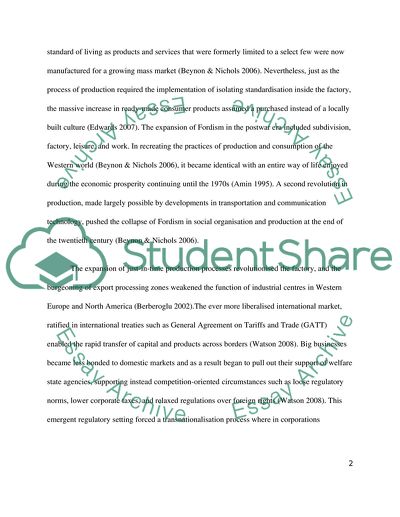Cite this document
(The Role of Post-Fordism in Understanding the Contemporary Working-Cla Coursework, n.d.)
The Role of Post-Fordism in Understanding the Contemporary Working-Cla Coursework. Retrieved from https://studentshare.org/social-science/1738175-how-have-processes-associated-with-post-fordism-affected-our-ability-to-understand-what-could-be-considered-working-class-culture-today
The Role of Post-Fordism in Understanding the Contemporary Working-Cla Coursework. Retrieved from https://studentshare.org/social-science/1738175-how-have-processes-associated-with-post-fordism-affected-our-ability-to-understand-what-could-be-considered-working-class-culture-today
(The Role of Post-Fordism in Understanding the Contemporary Working-Cla Coursework)
The Role of Post-Fordism in Understanding the Contemporary Working-Cla Coursework. https://studentshare.org/social-science/1738175-how-have-processes-associated-with-post-fordism-affected-our-ability-to-understand-what-could-be-considered-working-class-culture-today.
The Role of Post-Fordism in Understanding the Contemporary Working-Cla Coursework. https://studentshare.org/social-science/1738175-how-have-processes-associated-with-post-fordism-affected-our-ability-to-understand-what-could-be-considered-working-class-culture-today.
“The Role of Post-Fordism in Understanding the Contemporary Working-Cla Coursework”, n.d. https://studentshare.org/social-science/1738175-how-have-processes-associated-with-post-fordism-affected-our-ability-to-understand-what-could-be-considered-working-class-culture-today.


